Title: RECKLESS IN RED
Author: Rachael Miles
Publisher: Kensington Zebra
Pages: 360
Genre: Regency Romance
BOOK BLURB:
Is it her seductive eyes, or his suspicion that she’s up to no good that have Clive Somerville shadowing Lena’s every move? Either way, his secret investigation for the Home Office has him determined to uncover Lena’s hidden agenda. But the closer he gets to her, the more he longs to be her protector. Is she a victim of circumstance? Or a dark force in a conspiracy that could destroy everything Clive holds dear? Discovering the truth could have dire consequences, not only for Lena, but for his heart . . .
Reckless in Red was a 2019 finalist for the Holt Medallion in Historical Fiction and a first-place winner in the 2020 National Federation of Press Women’s communications contests in the category Fiction for Adult Readers: Novels.
Praise for Reckless in Red
An artist preparing a huge exhibition is disheartened when her business partner absconds with her money, but the event introduces her to an aristocrat who ultimately becomes her greatest ally against a shadowy enemy.
Artist Lena Frost is a survivor. She’s survived a weak father and a difficult stepmother. She survived in France during Napoleon’s war. She’s even rebounded from her lost career when she finally had to flee France after having been betrayed. Now she’s spent three years preparing a huge exhibition, which is the talk of London. So when her trusted business partner disappears with all her funds just two weeks before the gala opening, she’s nearly defeated. Especially when he leaves her an enigmatic message implying she’s in danger. But she can’t give up: “She would have to reinvent herself again. The very thought of it made her almost weak with despair.” Fearing she’s being followed, she winds up at The African’s Daughter, a bookshop owned by her Anglo African friend Constance Equiano, who introduces her to the Muses, a group of aristocratic ladies who meet monthly at the shop. Through them, she meets Lord Clive Somerville, brother of the Duke of Forster and the Regency equivalent of a forensic pathologist. When it becomes clear that someone is trying to kill Lena and more than one of her exhibition artists has disappeared mysteriously, Clive vows to keep her safe, help her open the exhibition, and discover who’s behind the threats. Author Miles continues her smart, intriguing Muses Salon series (Jilting the Duke, 2016, etc.) with another bright, accomplished heroine who fights for her happiness with an unexpected perfect match.
A unique storyline, a dose of suspense, and a circle of intelligent female friends enhance a successful romance.
Kirkus Reviews
The suspenseful fourth in Miles’s Muses’ Salon series (after Tempting the Earl) captivates with clever prose and an unconventional heroine. In 1820 London, painter Lena Frost drifts on the fringes of society due to her checkered past, but she hopes that her upcoming exhibition will catapult her into artistic fame. Her hopes are dashed when her business partner disappears with all of their money. Then several people, all with some connection to Lena, are murdered. Enter Clive Somerville, who is the younger brother of a duke and is a surgeon who serves among the Home Office’s investigative ranks. His inquiries into the rash of killings lead him straight to Lena’s doorstep. His fascination with Lena blurs the lines between suspicion and desire, and his urge to question her quickly transforms into a need to protect her. The only flaw in this intricately crafted historical romance is the unbelievable speed at which the connection between the protagonists develops. Readers looking for a change from Regencies will find this witty Victorian tale refreshing.
Publishers Weekly
ORDER YOUR COPY
Amazon → https://amzn.to/3ftmvby
Barnes & Noble → https://bit.ly/31cAnBO
Winter 1820“That damned swindler.”From the office door of Calder and Company, Lena Frost could see the key, left precisely in the middle of the empty desktop. Everything else was gone: Horatio’s inkwell, his penknife, his little toys, even the carved bird he’d been toying with for the last several weeks. She knew what it meant: Horatio had left. For good.But did he take the money? She snatched up the key as she rounded the desk. Perhaps he’d left it—or at least enough to pay the remaining craftsmen and open the ex- hibition. Perhaps: the word felt hollow.Five of the six desk drawers stuck out several inches. Horatio had left in haste. She looked through the drawers, now a jumble. Unused correspondence paper in a variety of sizes. An assortment of bills, paid—because she had paid them—to the end of the quarter. A handful of artist’s crayons, almost used up. She picked up the sanguine pencil, its tip a ruddy red against her hand, then tossed it back into the drawer. Horatio was a talented artist, but his real skill was with words, most of them lies.Nothing in the drawers was of any importance.Only the drawer where she kept the money box was still shut. If the money was gone, her only hope would be to keep it quiet until she could open the exhibition. Subscribers had paid in advance to see what everyone was calling the most important art exhibition of the year. If she didn’t open, she’d have to refund their money. If she could make it two more weeks . . .She hesitated before turning the key, torn between needing to know and dreading the knowledge.No. Whatever is here—or isn’t—I will face it, as I always have. She turned the key. The drawer opened about four inches, then stuck. Hope bloomed for a moment. Perhaps the money box was still there, wedging the drawer in place, its banknotes and coin all still neatly arranged in di- vided trays. She pushed the drawer in, then tugged it out. But nothing would make it open wider.She slid her hand in flat; there wasn’t room to make a fist. Then she inched her fingers forward. She felt nothing but the wooden bottom of the drawer. When she reached the halfway point, her stomach turned sour. The box was gone. But she kept reaching, needing to know the drawer was empty before she let herself sink into the despair already pooling inside her.At the very back of the drawer, almost past her reach, her fingertips felt the edge of a thick piece of paper. A banknote? Perhaps he had left her enough to open the exhibition? Or at least to pay her rent? Pressing the tips of her fingers against the paper, she dragged it forward and out. The note was folded over twice, and she hesitated a moment, afraid of what it might tell her.The paper was fine, well made, one of the sheets she used to correspond with wealthy patrons and subscribers. That in itself was strange: Horatio normally wrote on paper with a large watermark of Britannia in the middle of the page. He’d play a game with the ghost image, positioning his salutation so that Britannia would look at the name of the addressee or so that her spear would intersect with his period to make an invisible exclamation at the end of his sentences. Lena had shaken her head at his games, finding it hard to remain angry or frustrated with him. But if he’d endangered the exhibition, she might remain angry with him forever.Tightening her jaw, she unfolded the page. In the center, Horatio had lettered a single word: “RUN.”The despair in her stomach turned instantly to an unreasoning fear. Every creak, every groan of the old building sounded like a warning. Run.She pushed the drawer closed, locked it, and replaced the key in the center of the desktop.Surveying the room, she tried to imagine where Hora- tio might have hidden the money box. But, other than the desk, two chairs, and the old engravings stuck with pins to the walls, the room was almost empty. Everything was just as it had been for the last two years, except the money was gone, and Horatio with it.All he’d left her was the note. She held it out, examin- ing the way Horatio’s R curved oddly beneath the bottom of the U, and the final stroke of the N trailed upward. An extra blotch of ink widened the line slightly before the tip, like the hand of a clock. She held the page up to the light. No watermark, no secret design that played with the letters.She stood, her arms wrapped around her chest, the note limp in one hand. She’d never expected him to betray her, to leave her with no way out but to run. All her energy, her passion, drained out onto the wooden floor and seeped away between the boards. The exhibition would fail. She would fail. And this time she had nowhere to . . . run.She traced the malformed letters of the note once more, then she crushed it against her palm and shoved it in her pocket.From the outer office, the hallway door creaked open. When Horatio’d said run, she had no idea he meant so soon. Suddenly afraid, she scanned the room. The inner office door was partly open. The drop from the window to the street was three stories. She had nowhere to hide, and only seconds to make a decision.Heavy footfalls approached. Though the crew and the ticket seller had left soon after she’d returned, the office door remained open to prospective subscribers until she or Horatio left for the evening. But should the intruder be dangerous, she would have no help. She looked down at her clothes, her best dress and coat worn to meet a pub- lisher who’d agreed to sell engraved prints of the panorama. With only a moment to imagine a plan, she flung herself into a chair before the desk. Her only hope was to pretend to be someone else.A tall man, strongly built, pushed the door open. Stand- ing in the doorway, he seemed like one of the statues from the Loggia dei Lanzi come to life. And he was beautiful. His clothes caressed his form, revealing powerful shoul- ders, narrow waist, and firmly muscled thighs. His black hair curled in thick waves like Benvenuto Cellini’s Perseus. In Florence, she’d marveled at the sculptures of the classical gods, their muscles detailed in marble or bronze. But she’d never realized how breathtaking it would be for those ancient heroes to come to life.He examined the room slowly before he turned his attention to her. And when his eyes met hers, it was both exhilarating—and terrifying.“Are you Mr. Calder? I wanted to subscribe to the ex- hibition in your Rotunda.” She kept her tone breathless and a little naive. “I saw a panorama once when I was a child—the Temples of Greece—and I’ve never forgotten it, how you could stand in the middle and feel as if you had been transported to a different place and time.” She spoke quickly, letting her words jumble together in a rush of enthusiasm. “I’m looking forward to seeing your painting. I’ve read all the clues you’ve advertised for de- ciphering the topic. I think it must be Waterloo. What else could be painted in such a grand scale? How hard must it be to paint all those figures—the horses, the flags, our men marching valiantly into battle? It must be such a glorious scene!”“Don’t forget the carrion birds and the jackals ripping apart the bodies of the dead.” His voice was stern, but the sound of it resonated down the line of her spine. “Or the bodies broken apart by the cannon or the bayonet.”“Well, sir!” She rose, feigning offense. “If you treat a prospective subscriber so rudely, I will spend my sixpence elsewhere.” She walked briskly toward the door. When he didn’t move out of her way, she stopped just out of his reach.He was considering her carefully, examining her clothes and her figure beneath them. Under the focused attention, Lena felt exposed, like a rabbit who’d encountered a hungry hawk.Refusing to be intimidated, she examined him in turn. His eyes were a cold green, his chin firm. His cravat, tied loosely around his neck, made her wish it was tied even more loosely. Her fingers itched for her sketchbook and pencil. Oh, that he would be just another would-be subscriber! Then—perhaps—she could convince him to sit for her. She pushed the thoughts away. He might be handsome, even devastatingly so, but if he were Horatio’s enemy, he would likely be hers as well.He remained in the doorway, and his stare intensified. She felt the heat of it along her neck and cheeks. Her stomach twisted, but whether in attraction or fear, she couldn’t be certain. The silence between them grew, and Horatio’s message echoed in her ears: Run.“Will you at least be a gentleman and remove yourself from the doorway?” She pulled her shoulders back, as she did with suppliers who wished to take their fee from Horatio instead of from her.For a moment, he looked abashed, as if he hadn’t considered that his behavior was ungentlemanly.“It appears we both have business with Calder, and we are both disappointed.” He stepped away from the door- way, giving her ample room to escape.Then, as she passed, he offered her a low bow, as if she were a princess or queen. She felt his stare on her back as she walked purposefully, but not too quickly, to the outer office door. She refused to look back at him, afraid to reveal her fear—or her interest.When she reached the outer door, she allowed herself one last look at her Greek-god-come-to-life, but he had already moved into the office and out of sight. She stepped into the hall, listening. A subscriber likely wouldn’t wait too long for Horatio to return.She heard the desk drawers open and close, and papers rustle. Not a subscriber then, and her disappointment felt like a rock in the pit of her belly. She waited another minute, but when she heard him wrestling with the stuck drawer, she finally took Horatio’s advice.She ran.
About the Author
Rachael Miles writes ‘cozily scrumptious’ historical romances set in
the British Regency. Her books have been positively reviewed by Kirkus, Publishers Weekly, and Booklist,
which praised her ‘impeccably researched and beautifully crafted’
novels, comparing her works to those of Jo Beverly and Mary Jo Putney.
Her novel, Reckless in Red, won first place in adult fiction:
novels in the National Federation of Press Women’s writing contest. A
native Texan, Miles is a former professor of book history and
nineteenth-century literature. She lives in upstate New York with her
indulgent husband, three rescued dogs, and all the squirrels, chipmunks,
and deer who eat at her bird feeders.
Website: rachaelmiles.com
Twitter Address: http://www.twitter.com/rachael_miles1







































































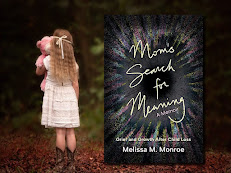



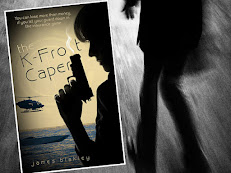


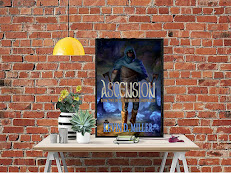

















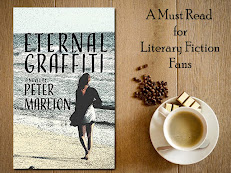




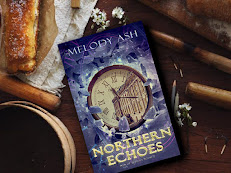







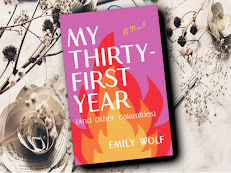

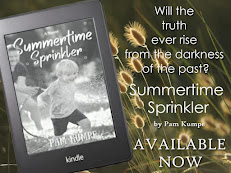




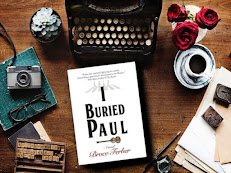
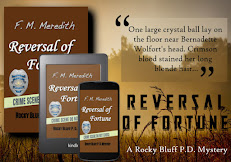


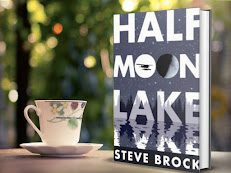

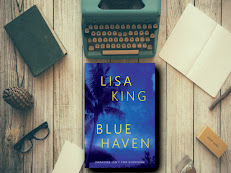



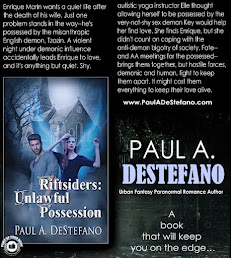











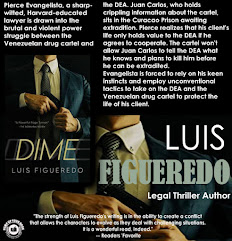


















































No comments:
Post a Comment